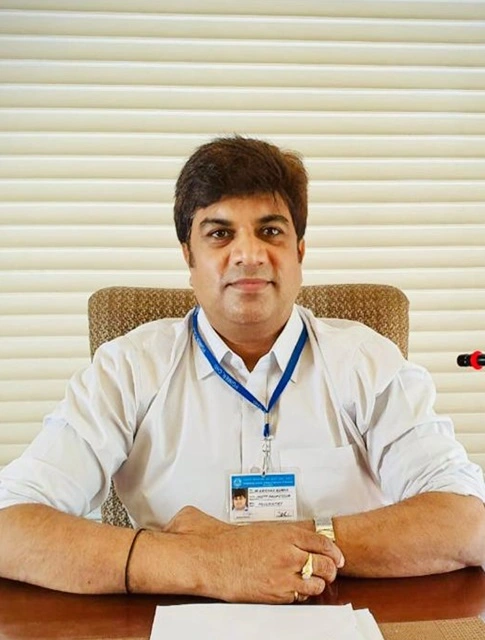Forum

Dr Seema P Uthaman
Vice Principal., IMHANS,Calicat

Dr Krishan Sony
Additional Professor (Clinical Psychology), Dept. of Psychiatry., PGIMER, Chandigarh

Ms Manasi Jain
Clinical Psychologist, Former Scholar., NIMHANS
Yes, songs with alcohol references can glamorize drinking, influencing teens to view alcohol use as trendy or socially rewarding. This may contribute to risky behaviors, early alcohol use, and public health issues like addiction and impaired judgment.
Answered by: Dr Krishan Sony
Depending on the client's condition, psychiatrists may prescribe medications commonly used in the de-addiction process, such as:
-
Methadone, Buprenorphine, and Naltrexone – for managing opioid addiction.
-
Disulfiram, Naltrexone, and Acamprosate – for treating alcohol dependence.
-
Bupropion and Varenicline (Chantix) – for nicotine cessation.
These medications aid in reducing cravings, alleviating withdrawal symptoms, and preventing relapse, forming a key part of a comprehensive recovery plan.
Answered by: Dr Krishan Sony
You're showing real strength by wanting to quit—nicotine addiction, combined with anxiety and a triggering environment, makes it incredibly tough. A mix of medical support, therapy, and gradual habit change can help you break free and feel more in control.
Answered by: Dr Krishan Sony
Immediate stoppage of alcohol or drug use, especially after long-term use, can lead to withdrawal symptoms like anxiety, tremors, sweating, insomnia, and in severe cases, seizures, hallucinations, or even life-threatening conditions like delirium tremens (DTs) in alcohol withdrawal. Medical supervision is often essential to ensure safety during detox.
Answered by: Dr Krishan Sony
Quitting smoking works by gradually retraining your brain to function without nicotine while managing withdrawal symptoms. creating a personalized quit plan, suggesting effective strategies and treatments, and offering daily support and motivation.
Answered by: Dr Krishan Sony
Quitting talab pan masala involves breaking both the nicotine addiction and the habit—start by reducing use gradually, using substitutes like nicotine gum if needed. Support from a doctor, counseling, and avoiding triggers can make the process easier and more effective.
Answered by: Dr Krishan Sony
A vape is a device that heats a liquid (e-liquid or vape juice) containing nicotine, flavorings, and other chemicals to create an aerosol, which is inhaled. It's often marketed as a less harmful alternative to smoking, but it still carries health risks, including nicotine addiction.
Answered by: Dr Krishan Sony
To help your friend, express care without judgment, share the health risks of nicotine, and suggest healthier alternatives. Lead by example and offer your support, but remember, the choice to quit must come from them.
-
Be Supportive, Not Judgmental: Express concern without criticizing. For example, say, “I care about you and I’m worried about the impact nicotine might have on your health.”
-
Offer Information: Share facts about the risks of nicotine, like addiction, health problems, and long-term effects. Make sure it's in a helpful, non-lecturing way.
-
Encourage Alternatives: Suggest healthier ways to cope with stress or social situations that don’t involve nicotine, like exercising or engaging in hobbies.
Answered by: Dr Krishan Sony
सबसे पहले हमें यह समझना होगा कि नशा एक बीमारी है और उससे बाहर आने के लिए चिकित्सक और मानसिक सहायता की जरूरत पड़ती है।
नशे से पीड़ित इंसान को प्यार से समझाएं और चिकित्सक की मदद लेने के लिए प्रोत्साहित करें। डी एडिक्शन सेंटर या नशा मुक्त केंद्र जाके बिना नशे के जीने का अनुभव करें।
उन्हें मनोवैज्ञानिक से बात करने के लिए भी प्रोत्साहित करें जिससे वह अपने जीवन के किसी भी प्रकार के तनाव को नशे के बिना झेल सकें।
उनके लिए एक अच्छा उदाहरण बने जो नशे के बिना सुखी जीवन व्यतीत करता है।
आप सहायता समूह (support groups) की मदद भी ले सकते हैं। ऐल्कोहॉलिक्स एनोनिमस (Alcoholics Anonymous) एक ऐसा सपोर्ट ग्रुप है जहां शराब की लत से पीड़ित लोग एक दूसरे की सहायता करते हैं इससे बाहर निकलने में।
Answered by: Ms Manasi Jain
Alcohol consumption should always be approached with caution and responsibility. It’s important to adhere to health guidelines and remain mindful of how alcohol may impact decision-making, professionalism, and personal well-being
Answered by: Dr Krishan Sony
Nasha se chuttkara paane ke liye sabse pehle apne iradon ko majboot banana zaroori hai. Aapko professional help jaise therapy, de-addiction programs, aur medications (jaise nicotine patches ya buprenorphine) ka sahara lena pad sakta hai. Apne triggers ko pehchankar unse door rehna aur support system (doston, parivar, ya support groups) ka sahara lena bhi madadgar ho sakta hai.
Answered by: Dr Krishan Sony
Drugs are substances that change a person’s mental or physical state. They can affect the way your brain works, how you feel and behave, your understanding and your senses. This makes them unpredictable and dangerous, especially for young people.
According to the World Health Organization (WHO) 'Psychoactive drugs are substances that, when taken in or administered into one's system, affect mental processes, e.g. perception, consciousness, cognition or mood and emotions. Psychoactive drugs belong to a broader category of psychoactive substances that include also alcohol and nicotine. “Psychoactive” does not necessarily imply dependence-producing, and in common parlance, the term is often left unstated, as in “drug use”, “substance use” or “substance abuse'. Production, distribution, sale or non-medical use of many psychoactive drugs is either controlled or prohibited outside legally sanctioned channels by law. Psychoactive drugs have different degrees of restriction of availability, depending on their risks to health and therapeutic usefulness, and classified according to a hierarchy of schedules at both national and international levels.
There are legal and illegal drugs available in the society. For example
- legal – for example, caffeine, tobacco and alcohol
- illegal – for example, cocaine or heroin.
Answered by: Ms Manasi Jain
Nicotine is a naturally occurring chemical found in tobacco plants. It is a highly addictive substance that affects the brain, creating feelings of pleasure and alertness, but it can also lead to dependence and long-term health problems, especially when consumed through smoking or vaping.
Answered by: Dr Krishan Sony
Yes, medicines are helpful in gettig out of the addictions under the strict guidance and observation of the doctor. Medicines help manage the withdrawal symptoms and reduce drug craving.
Answered by: Ms Manasi Jain
ज्यादा समय तक अनियंत्रित नशा करने से बहुत तरह की समस्याएं खड़ी होती हैं
१. सबसे पहले आपके शारीरिक स्वास्थ्य पर कारण असर और नुकसान
२. मानसिक स्वास्थ्य पर गंभीर प्रभाव
३. परिवार में संबंधों में दरार
४. नौकरी छूट जाने का भरी अवसर
५. आर्थिक परेशानियां
६. जीवन खोने की संभावना
Answered by: Ms Manasi Jain
Answered by: Dr Krishan Sony
To quit smoking, set a quit date, identify your triggers, and use nicotine replacement therapy (NRT) like patches or gum. Seek support from professionals or support groups, stay active, and reward yourself for milestones to stay motivated.
Answered by: Dr Krishan Sony
To stop drinking and smoking, start by setting clear goals and seeking professional help, like therapy or support groups. Use tools like nicotine replacement therapy (NRT) for smoking and consider medications or counseling for alcohol, while avoiding triggers and focusing on healthy habits to stay motivated.
Answered by: Dr Krishan Sony
ज्यादा समय तक अनियंत्रित नशा करने से बहुत तरह की समस्याएं खड़ी होती हैं
१. सबसे पहले आपके शारीरिक स्वास्थ्य पर कारण असर और नुकसान
२. मानसिक स्वास्थ्य पर गंभीर प्रभाव
३. परिवार में संबंधों में दरार
४. नौकरी छूट जाने का भरी अवसर
५. आर्थिक परेशानियां
६. जीवन खोने की संभावना
Answered by: Ms Manasi Jain
लोग नशा कई कारणों से करते हैं। उनमें कुछ मुख्य कारण हैं:
१. नशे से मिलने वाले अस्थाई शारीरिक आनंद का अनुभव उठाने के लिए
२. किसी समूह ( दोस्तों )का हिस्सा बनने के लिए वो उस समूह की आदतों को अपना लेते हैं
३. मानसिक और शारीरिक दर्द से निपटने के लिए
४. अकेलेपन को लड़ने के लिए
५. जिन लोगों ने बचपन से उसका इस्तेमाल करते हुए बड़ों ( परिवार में या समाज में) को देखा होता है वो कम उम्र में ही सीख जाते है
६. कुछ लोगों के व्यक्तित्व में आवेगशीलता और जोखिम उठाने की प्रवृत्ति होती है उन्हें नशे की आदत लगने की सम्भावना ज्यादा हो सकती है
शुरुआत किसी भी कारण से हो एक बार नशे की लत लग जाती है उसे बाहर निकलना कठिन होता है।
बहुत बार लोग एक पहले अनुभव के लिए शुरू करते हैं और उसमें फंसते चले जाते हैं।
Answered by: Ms Manasi Jain
India mein alcohol use ko rokne ke liye shiksha, awareness programs, aur rehabilitation centers ka support zaroori hai. Sakht kanoon aur social norms mein badlav bhi iss process ko safal bana sakte hain.
Answered by: Dr Krishan Sony
Answered by: Dr Krishan Sony
To quit Gutkha, seek professional help and consider nicotine replacement therapy to manage withdrawal. Gradually reduce intake, stay busy with distractions, and build a strong support system to stay on track.
Gradually reduce consumption by cutting down the amount of Gutkha you consume each day until you're no longer dependent on it.
Use nicotine replacement (like gum or patches) to help manage cravings, and consider seeking support from a counselor or support group for better guidance.
Answered by: Dr Krishan Sony
To quit pan masala, start by gradually reducing your intake to avoid severe withdrawal symptoms. Replace the habit with healthier alternatives like chewing gum or eating fruits, and seek support from a healthcare professional or support group to stay on track and manage cravings.
Answered by: Dr Krishan Sony
Yes, a person can be addicted to one or more substances. When a person is addicted to at least three different classes of substances (Alcohol, opiates, cannabis, amphetamines, hallucinogens, inhalants and benzodiazepines) without any specific preference it is called as Polysubstance Dependence. Adolescents and young adults have greater chances of using multiple substances. The treatment for multiple substance addictions is much more challenging and usually requires close monitoring through admission to a substance rehabilitation unit where both medical and psychological treatments are provided. People start using polysubstance to experience greater relaxation and more sedative effects. With each addition the negative side effects of each drug are also magnified. If you know of anyone addicted to multiple substances, encourage them to seek medical help to overcome the addiction.
Answered by: Ms Manasi Jain
Answered by: Dr Krishan Sony
Answered by: Dr Seema P Uthaman
Answered by: Ms Manasi Jain
Answered by: Dr Krishan Sony
Answered by: Dr Seema P Uthaman
Answered by: Ms Manasi Jain
Answered by: Dr Krishan Sony
Answered by: Dr Seema P Uthaman
Answered by: Ms Manasi Jain
Answered by: Dr Krishan Sony
Answered by: Dr Seema P Uthaman
Answered by: Ms Manasi Jain
Answered by: Dr Seema P Uthaman
Dear Friend, thanks for your query. I appreciate that you recognise smoking weed is not good for you and have made attempts to quit it. To come out of any addiction you need family and professional support in addition to your own determination to quit. I surely think you can come out of it, if you make more consistent efforts and not get demotivated by your past experiences to quit. I would like to advise you to visit a psychiatrist nearby, de-addiction/rehabilitation centre or a medical professional to take this forward. You can also consider sharing your story with someone you trust in your family. I am hopeful they will be able to help you by getting access to the right emotional and medical support you need.
Answered by: Ms Manasi Jain
Answered by: Dr Krishan Sony
Answered by: Dr Seema P Uthaman
Answered by: Dr Krishan Sony

